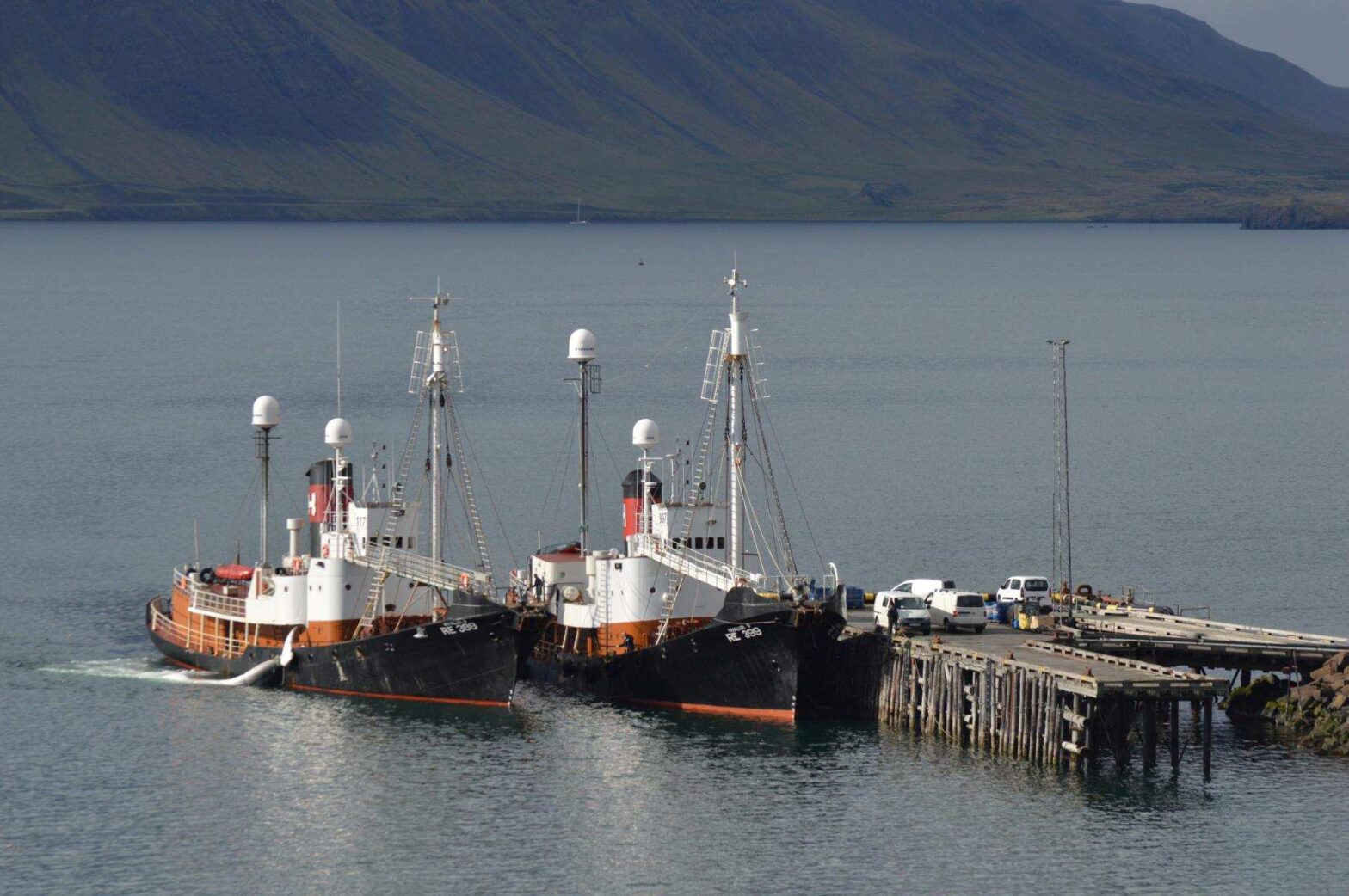Harpoons to be fired again as Iceland resumes its fin whale hunt
With today’s announcement by Iceland‘s Minister of Food, Agriculture and Fisheries, Svandís Svavarsdóttir, not to continue this summer’s temporary whaling ban, fin whales will soon be killed again. The two Icelandic whaling vessels left port in anticipation of this announcement already yesterday.
While the Icelandic Minister imposed tightened regulations which require improvements during the hunt, it is to OceanCare’s great disappointment that whaling may resume.
Conservationists are also concerned that this move also puts the announced phase-out of whaling in the longer term in question. A decision about Iceland’s self-allocated whaling quota for the next several years is expected towards the end of this year.
The international marine conservation organisation OceanCare is gravely disappointed that Iceland’s temporary ban on whaling, which came into force at the start of the whaling season this year, will be lifted allowing its two remaining specialist killing vessels to again go out and kill fin whales. The ban was put in place by the Icelandic government in recognition of the fact that Iceland’s own research into the hunt showed it to be cruel and that it did not meet the standards expected in the island nation’s own legislation.
OceanCare is concerned that this resumption of whaling probably means that there will now be a race to kill as many whales as possible in the remaining weeks of reasonable hunting weather. It may also have a severe impact on the long-term debate on the future of whaling in Iceland itself, as at the end of this year Iceland has to decide whether or not it will issue itself a quota block for the next several years.
“It is deplorable that this cruel practice has been allowed to resume. We are bitterly disappointed by the decision which entirely goes against the clear facts that are available to the government and people of Iceland. We can almost be certain that the Icelandic whalers will not meet the imposed requirements. This cruel, unnecessary and outdated practice needs to stop,” says Nicolas Entrup, OceanCare’s Director of International Relations.
In August 2022, Iceland‘s Fisheries Minister, Svandís Svavarsdóttir, established regular inspections of whaling hunts by Iceland’s Food and Veterinary Authority (MAST). These investigations looked at a subsample of 58 whales and showed that around 40% did not die instantly, with an average time to death of 11.5 minutes for those whales. Two whales had to be shot four times; killing one took almost an hour and the other two hours. Based on this evidence it was concluded that whaling did not meet Iceland’s Animal Welfare Act and it was suspended – with the ban in force until the end of August 2023.
Background information
Based on the results of the inspections in 2022, it was concluded that whaling did not meet Iceland’s Animal Welfare Act and it was suspended – with the ban in force until the end of August 2023.
Recent whaling in Iceland: In 2019, 2020, and 2021 no fin whales were killed. Then, in 2022, fin whaling resumed. 148 fin whales were killed. The fin whaling season usually lasts from mid-June to mid-September during the Nordic summer.
About fin whales: The fin whale is the second-largest whale species on earth, only the blue whale is bigger. Individuals can weigh up to 80 tons, can reach a length of up to 26 meters (85 feet) and live up to 90 years.
Impact of whaling on fin whales: Like all other large whales, fin whales were hunted by commercial whalers, which severely lowered their populations. Hundreds of thousands were killed in the twentieth century. Globally the species is considered Vulnerable on the IUCN Red List of Threatened species because the remaining population is considered to be such a small fraction of what it was before modern whaling. Fin whales are exposed to many other threats, including from ship strikes, entanglement in fishing gear and ocean noise pollution.
Iceland and the International Whaling Commission (IWC): Iceland was a Member of the IWC from 1946. In 1982 it did not formally object to the adoption of the ban on commercial whaling (known as the “moratorium”). Iceland, similarly to Japan, continued to hunt fin and sei whales under Art. VIII for so-called research purposes. However, international pressure, including the threat of trade restrictions then made the Nordic Island State leave the IWC in 1992 and cease whaling operations. Around that time, whale watching started to evolve in Iceland.
In response in part to intense efforts by pro-whaling nations to overcome the moratorium, Iceland re-rejoined the IWC in 2002 with a reservation to the moratorium. Rejoining with a reservation against the moratorium, Iceland set a precedent in international law, which has still not been accepted by many IWC Member States.
Further Information
- OceanCare Report “UNDER PRESSURE” (2022) about the cumulative threats to whales, dolphins and porpoises in European waters. Chapter 5 on hunting: https://www.oceancare.org/wp-content/uploads/2022/11/Animal_Species_Protection_Under-Pressure_Whales-and-Dolphins_EU_Report_OceanCare_EN_146p_2021.pdf.
- Official announcement from Government website: https://www.stjornarradid.is/efst-a-baugi/frettir/stok-frett/2023/08/31/Hert-skilyrdi-og-aukid-eftirlit-forsenda-aframhaldandi-veida-a-langreydum/
